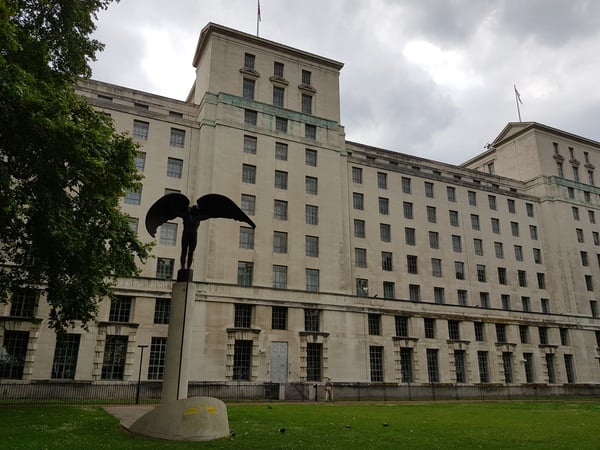Dstl makes better, faster decisions with quantum computing
PA Consulting has worked with the Defence Science and Technology Laboratory (Dstl) on prototype tools using advanced quantum principles alongside essential elements of human decision-making.
Dstl has a mission to advance UK capability through the development and application of novel or innovative science and technology.
Funded through MOD’s Defence and Security Accelerator (DASA) – the government organisation that finds and funds exploitable innovation for a safer future – PA created prototype tools to help make better decisions, faster while keeping the essential elements of human decision-making.
Future evolutions of these tools are expected to play a key role in improving many decision-making processes across the MOD, lowering risk, optimising resources and, ultimately, keeping people safer. This work also helps position the UK at the forefront of practical quantum algorithm development.
As the science arm of the MOD, Dstl’s role is to help the MOD apply science and technology innovation to strengthen the nation’s defence and security. Dstl is alert to the need for improving the quality and speed of decision-making in an ever more complex operating environment, and so it needs ideas on how disruptive technologies could provide solutions.
Quantum technology is a fast-maturing field of mathematics, physics and engineering. One branch, quantum computing, enables agile decision-making by identifying an optimum course of action by trialling all scenarios and outcomes simultaneously. This cannot be done using conventional computing tools.
"We suspected that quantum computing had potential but we needed to put this into a military context and working with PA Consulting they are helping to provide the right approach to practically evaluate near term potential from both the quantum and the defence operational viewpoints," said Dr Martyn Fletcher, Principal Scientist at Dstl.
The work has:
- applied advanced quantum principles to the challenge of making operational decisions better, faster and with more human impact
- created real-world demonstrations of the potential for today’s quantum computing to address today’s military operational challenges
- improved the quality of decision-making by providing a tool enabling people to rapidly explore the trade-offs involved in decision-making
Realising the opportunity of quantum computing
The resulting innovation was a hybrid of classical computing and quantum computing solutions hosted via Amazon Braket – Amazon’s quantum computing service.
The 2 selected use cases were to answer the questions ‘where is the best place to put communications assets to ensure a resilient network?’, and ‘how to best use limited resources, given their constraints, against a to-do list?’ These are both examples of solving problems that rapidly scale to a complexity beyond the capability of humans or classical computing solutions.
The next step was to understand how MOD operational challenges could be programmed into the computer. Quantum compute software is comparable in maturity to classical computing in the 1960’s – this required PA to program very differently and transform the problem definition into the mathematical formulation required for a quantum computer. The instructions were then relayed to the Braket service on the cloud to run the calculation on today’s hardware. The result was a hybrid solution with data formulated and presented by the classical computer, but with calculations carried out using quantum techniques – making the best of the capabilities of both forms of computer.
This hybrid classical/quantum approach allowed MOD users to make an efficient exploration of trade-offs, producing a wide range of solutions from which they could choose. This provided the human impact that is essential to good decision-making and enabled Dstl leaders to communicate to their teams the reasons and the diligence they took in reaching the decisions.






